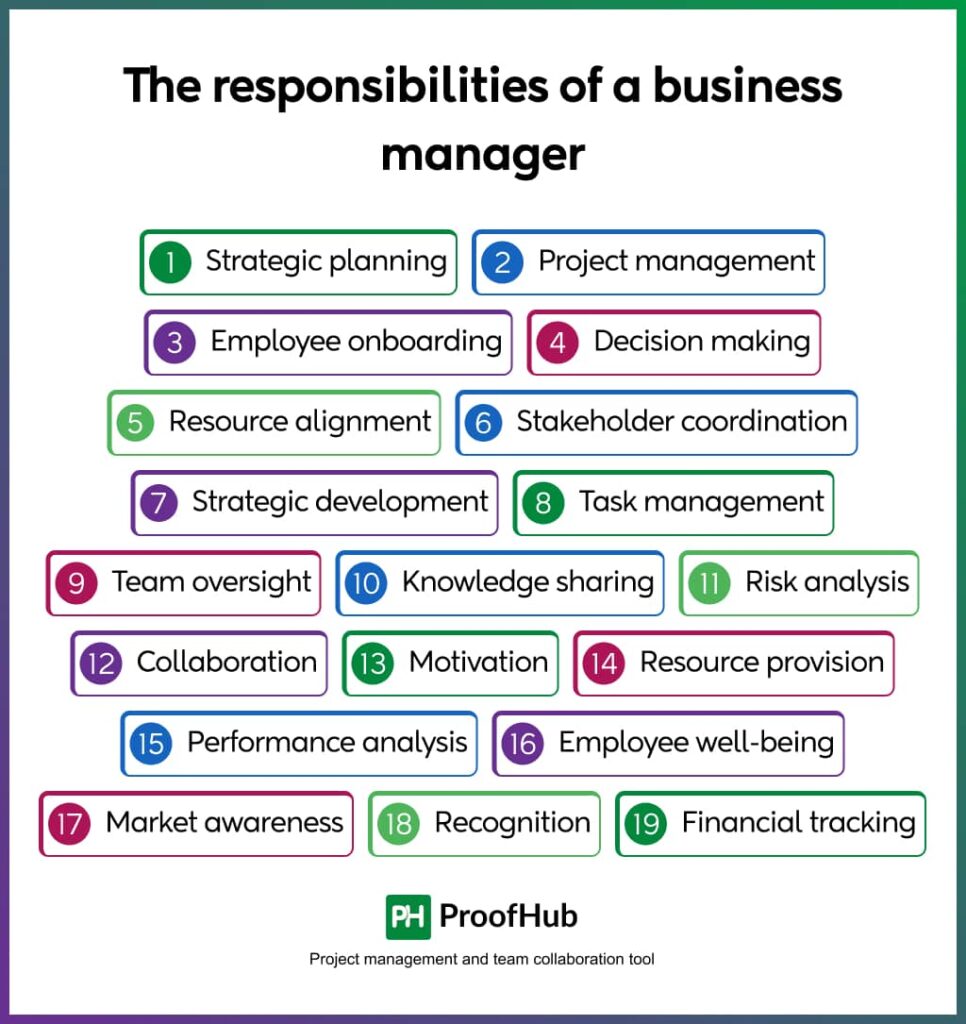
How to Become a Business Management Pro: Step-by-Step Guide
Unlocking the doors to a successful career in business management could be one of the most rewarding decisions you ever make. If you’ve ever imagined yourself leading a team, making strategic decisions, or driving a company towards success, then this path might just be perfect for you.
But how do you transform that dream into reality? This guide will walk you through the essential steps needed to become a business management professional. It’s simpler than you might think, and we’ll make sure you have all the information you need.
Whether you’re a student eager to step into the business world or a professional considering a career shift, this article is crafted just for you. Dive in and discover how you can turn your aspirations into achievements. Your future in business management starts here.

Understanding Business Management
Discover the essentials of business management. Learn skills in leadership, organization, and decision-making. Gain experience through internships, courses, and real-world practice.
Understanding Business Management Business management is the backbone of any successful company. It involves planning, organizing, leading, and controlling resources to achieve specific goals. Whether you’re running a small startup or a large corporation, knowing the ins and outs of business management can set you on the path to success.
What Is Business Management?
Business management is about making decisions that drive a company forward. It encompasses a wide range of activities, from setting strategic goals to managing day-to-day operations. Think of it as a chess game where every move has a purpose. Effective management requires a solid understanding of your industry. Stay informed about market trends and your competitors. This knowledge helps you make informed decisions and stay ahead of the game.
The Importance Of Leadership In Business Management
Leadership is a crucial component of business management. A good leader inspires their team and fosters a productive work environment. They communicate clearly, setting expectations and providing feedback. Reflect on leaders you’ve admired. What traits made them effective? Emulating those qualities can enhance your management skills and boost team morale.
Skills Needed For Successful Business Management
Successful business managers possess a mix of hard and soft skills. Financial acumen helps in budgeting and analyzing financial reports. Strong communication skills enable you to convey ideas and motivate your team. Problem-solving is another key skill. Challenges arise daily, and your ability to navigate them determines your effectiveness. Practice thinking on your feet and turning obstacles into opportunities.
Practical Steps To Enhance Your Business Management Skills
Enhancing your business management skills is a continuous journey. Take on new challenges that push your boundaries. Enroll in courses that cover areas you’re less familiar with, such as finance or marketing. Seek feedback from peers and mentors. Constructive criticism provides valuable insights into your strengths and areas for improvement. Are you ready to transform feedback into growth?
Why Continuous Learning Matters In Business Management
The business landscape is ever-changing, and continuous learning keeps you relevant. Stay updated with the latest industry trends and technologies. Attend workshops and network with other professionals. Imagine the competitive edge you’ll gain by being a step ahead. Continuous learning not only enhances your skills but also opens doors to new opportunities. Are you investing in your future?

Essential Skills For Success
Success in business management relies on strong communication, leadership, and problem-solving skills. Understanding financial principles and strategic planning helps steer a company towards growth. Adaptability and decision-making prowess ensure effective handling of challenges and opportunities.
In the fast-paced world of business management, certain skills set successful leaders apart from the rest. These essential skills are not just buzzwords; they are the backbone of effective management. Whether you’re climbing the corporate ladder or starting your own venture, mastering these abilities can make all the difference in achieving your goals.
Leadership Qualities
Leadership goes beyond just having a title. It’s about inspiring and motivating your team to achieve shared goals. Have you ever worked under someone whose enthusiasm was contagious? That’s the power of effective leadership. It’s important to be approachable and open to feedback, creating a work environment where everyone feels valued. Start honing your leadership skills by volunteering for projects that require coordination and decision-making.
Effective Communication
Communication is the bridge between ideas and execution. Clear and concise communication ensures everyone is on the same page and can prevent costly misunderstandings. Picture a meeting where everyone walks away with a different understanding—frustrating, right? Practice active listening and ask clarifying questions to ensure you’re understood and understand others. Remember, communication is a two-way street.
Strategic Thinking
Being able to see the big picture is crucial in business management. Strategic thinking involves anticipating future challenges and planning accordingly. Think of it like a game of chess, where each move needs careful consideration of several steps ahead. Start developing this skill by analyzing current market trends and how they could affect your business. Encourage brainstorming sessions with your team to explore innovative solutions.
Time Management
Time is one of the most valuable resources in business. Efficient time management can significantly boost productivity and reduce stress. Have you ever felt overwhelmed by a never-ending to-do list? Prioritize tasks based on importance and deadlines. Use tools like calendars or task management apps to keep track of your schedule. By mastering time management, you can focus on what truly matters and achieve more in less time. Success in business management is not about being the best at everything. It’s about developing these key skills and applying them effectively. Which skill will you focus on improving first?
Educational Pathways
Embarking on the journey to become a business management professional is an exciting adventure filled with diverse educational pathways. Whether you’re just starting or looking to advance your career, choosing the right educational path can significantly impact your success. Let’s dive into the various options available to you.
Relevant Degree Programs
Pursuing a degree in business management is a common starting point for many aspiring professionals. A Bachelor’s in Business Administration (BBA) offers a comprehensive understanding of business operations, finance, and marketing. It’s an ideal choice if you’re looking to build a strong foundation.
Alternatively, a degree in Management Information Systems (MIS) merges business knowledge with tech skills, preparing you for roles that bridge the gap between management and IT. Imagine being able to streamline processes with your unique tech-savvy insights.
Graduate programs like a Master’s in Business Administration (MBA) can elevate your career further, providing advanced skills and leadership techniques. Would you consider investing in this higher level of education to potentially open doors to executive positions?
Online Courses And Certifications
Online courses are a flexible option, allowing you to learn at your own pace. Platforms like Coursera and edX offer courses from top universities worldwide. Picture yourself exploring topics like strategic management or financial analysis from the comfort of your home.
Certifications can boost your resume and provide specialized skills. Consider obtaining a Project Management Professional (PMP) certification if you’re interested in leading complex projects. How would this specialized credential set you apart from your peers?
Some courses even offer interactive sessions with industry experts, giving you a chance to gain firsthand insights. Could these interactions be the key to sharpening your practical skills?
Workshops And Seminars
Workshops and seminars offer hands-on learning experiences, perfect for those who thrive in interactive environments. These events often focus on specific skills, such as negotiation tactics or leadership development. Are you ready to roll up your sleeves and dive into these dynamic learning situations?
Attending seminars can also expand your professional network. You might meet industry leaders and like-minded peers who could become valuable contacts. Can you imagine the potential opportunities that could arise from these connections?
Many organizations host workshops tailored to current business trends. Staying updated on these trends is crucial. Have you considered how attending such events could keep you ahead in this fast-paced industry?
Choosing the right educational pathway can shape your career trajectory in business management. From degrees to seminars, each offers unique benefits and challenges. What path will you choose to embark on your journey to becoming a business management expert?
Gaining Practical Experience
Understanding business management theory is important. But real-world experience is crucial. Engaging in practical experiences builds skills. It helps you apply what you learn. Practical experiences allow you to see how businesses operate. They offer a chance to learn from professionals. This hands-on approach is invaluable. Here are some ways to gain practical experience in business management.
Internships And Apprenticeships
Internships and apprenticeships provide a learning platform. They offer firsthand exposure to business processes. Interns work alongside experienced managers. This helps them understand day-to-day operations. An apprenticeship offers mentorship. It guides you through real business challenges. These opportunities improve your resume. They also enhance your understanding of management roles.
Part-time Jobs
Part-time jobs offer a glimpse into the business world. They let you earn while learning. Working in retail or customer service is insightful. You deal with different situations. This builds problem-solving skills. Part-time jobs teach responsibility. They also show how businesses manage staff. Every job has lessons to offer. Use them to grow your management skills.
Volunteering Opportunities
Volunteering is another way to gain experience. Nonprofits need help with various tasks. Managing events or leading teams is common. Volunteering enhances leadership skills. It also boosts your ability to work in teams. You meet diverse people. This broadens your perspective on management. Volunteering shows your commitment to growth. It’s a rewarding way to learn business management.
Building A Professional Network
Building a professional network is crucial in becoming a successful business manager. Connections open doors to opportunities, provide support, and enhance your career growth. Whether you’re just starting or looking to advance, your network can be one of your most valuable assets.
Industry Events And Conferences
Attending industry events and conferences can significantly expand your professional circle. These gatherings are not just about listening to speakers; they’re a chance to engage with peers and leaders in your field.
Consider attending at least one major conference each year relevant to your industry. Prepare by researching attendees and speakers to identify who you want to connect with. A single meaningful conversation can lead to mentorship or even a job opportunity.
Joining Professional Associations
Professional associations offer a structured way to build your network. These groups are dedicated to connecting individuals with similar career interests and goals.
By becoming a member, you gain access to exclusive resources, events, and forums. Engage actively by attending meetings, volunteering for committees, or contributing to newsletters. Your involvement can position you as a committed professional and expose you to industry trends and insights.
Leveraging Social Media
Social media platforms are powerful tools for professional networking. LinkedIn, in particular, is essential for business managers to connect with industry peers, recruiters, and thought leaders.
Regularly update your profile and share relevant content to showcase your expertise and interests. Participate in group discussions and send personalized connection requests to foster meaningful relationships. Have you ever considered how a simple LinkedIn message could evolve into a collaborative project or a career-changing opportunity?
Building a professional network requires effort and strategy, but the rewards are well worth it. By actively engaging in these networking opportunities, you strengthen your foundation as a business manager and open yourself to endless possibilities.
Staying Updated With Industry Trends
Staying updated with industry trends is vital for business management success. The business world evolves rapidly. Managers must adapt to new strategies and technologies. Staying informed helps leaders make smart decisions. It also enhances their ability to foresee challenges and opportunities. Embrace continuous learning to thrive in the dynamic business landscape.
Reading Industry Publications
Industry publications offer valuable insights into market shifts. They provide detailed analyses and expert opinions. Regular reading keeps managers informed about new developments. Choose respected journals and magazines. This ensures the information is reliable and current. Allocate time weekly for this activity. It helps maintain a competitive edge.
Following Influencers
Influencers shape conversations within industries. Follow them on social media platforms. They share innovative ideas and trends. Influencers often have firsthand knowledge of industry changes. Their insights can guide strategy adjustments. Engage with their content. Participate in discussions to broaden your perspective.
Participating In Webinars
Webinars offer interactive learning experiences. They connect you with industry experts. Attend webinars regularly to stay informed. These sessions cover diverse topics and trends. They allow real-time interaction with presenters. Ask questions and engage in discussions. This enriches your understanding of current issues.
Navigating Career Advancement
Advancing in business management requires strategic planning and determination. Many professionals find themselves at crossroads, wondering which path leads to growth. This journey often involves learning from others and setting clear goals. Here’s how you can navigate career advancement effectively.
Seeking Mentorship
Finding a mentor can make a difference in your career. Mentors provide guidance and share valuable insights. Their experience helps you avoid common pitfalls. Seek mentors who have achieved what you aspire to. They can offer advice tailored to your unique situation.
Career Planning And Goal Setting
Planning your career path is essential for success. Set clear, achievable goals. These goals should align with your long-term vision. Break them into smaller, manageable steps. Regularly review and adjust your goals. This keeps you on track and motivated.
Pursuing Advanced Roles
Advanced roles demand increased responsibility and skills. Pursue roles that challenge and help you grow. Take on projects outside your comfort zone. This shows initiative and readiness for bigger roles. Continuous learning is key to staying relevant. Consider further education or certifications to enhance your expertise.
Developing Personal Brand
Building a strong personal brand can boost your career in business management. Share your skills and experiences online. Connect with industry experts to learn and grow.
Developing a personal brand is crucial for anyone aspiring to become a successful business manager. It’s not just about having a strong resume; it’s about showcasing who you are and what you bring to the table. A well-crafted personal brand can set you apart from the competition and open doors to new opportunities.
Creating A Unique Value Proposition
Your unique value proposition (UVP) is what makes you stand out in a crowded marketplace. Think about what skills and experiences make you different from others. What can you offer that nobody else can? Consider asking yourself: What is my strongest skill? How does this skill benefit others? When I started my career, I focused on my knack for problem-solving. This became my UVP, and it helped me land my first management role. Identify your UVP and communicate it clearly in your professional profiles and conversations.
Building An Online Presence
In today’s digital world, your online presence is as important as your in-person impression. Start by updating your LinkedIn profile with relevant experiences and skills. Join industry groups to connect with like-minded professionals. Share insightful articles and your thoughts on current industry trends. This not only shows your expertise but also keeps your network engaged. Remember, your online presence is often the first impression people have of you.
Showcasing Achievements
Achievements are proof of your capabilities and can significantly bolster your personal brand. Don’t just list your achievements; describe the impact they had. Did you lead a team to success or increase sales by a large margin? Use numbers and specifics to quantify your achievements. For instance, if you saved your company money, mention the exact percentage or amount. Highlighting concrete achievements builds credibility and trust in your capabilities. Developing a personal brand requires time and reflection, but the benefits are worth the effort. What do you want your personal brand to say about you? Start crafting it today and watch how it transforms your career prospects.

Frequently Asked Questions
What Skills Are Needed For Business Management?
To succeed in business management, you need strong leadership, communication, and problem-solving skills. Financial acumen and decision-making abilities are also crucial. Understanding market trends and customer needs can give you a competitive edge. Developing these skills through education and experience is essential for effective management.
How Do I Start A Career In Business Management?
Begin by earning a degree in business or a related field. Gain experience through internships or entry-level positions. Networking is key, so connect with professionals in the industry. Consider pursuing certifications or an MBA to enhance your qualifications and increase your career prospects.
What Are The Top Business Management Strategies?
Successful business management strategies include setting clear goals, effective resource allocation, and continuous performance evaluation. Emphasize innovation and adaptability to stay ahead of competitors. Prioritize customer satisfaction and foster a positive company culture. Regularly review and refine strategies to ensure they align with market dynamics.
Why Is Business Management Important For A Company?
Business management is crucial for organizing resources, guiding teams, and achieving company goals. It ensures efficiency, drives profitability, and fosters sustainable growth. Effective management helps in adapting to market changes and mitigating risks. Ultimately, it maintains the overall health and competitiveness of the business.
Conclusion
Becoming a business manager is an achievable goal. Start with a clear plan. Focus on learning essential skills and gaining experience. Seek opportunities for growth and development. Stay updated with industry trends and practices. Networking is key; connect with professionals in the field.
Practice good communication and leadership skills daily. Remember, persistence and dedication lead to success. Keep motivated and embrace challenges as learning opportunities. With the right mindset, you’ll progress in your management career. Stay committed and your efforts will pay off.





